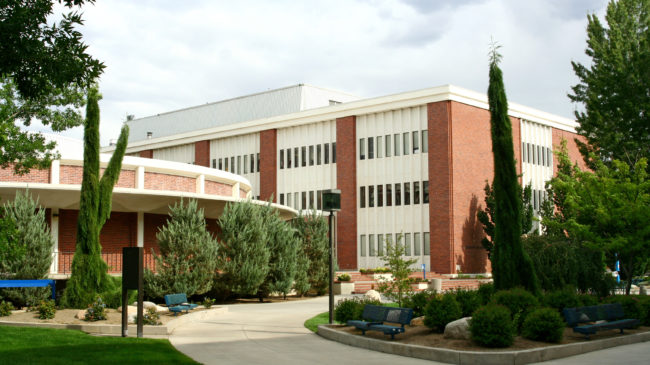Nevada Ballot Question 1: Remove Constitutional Status of Board of Regents Amendment
Summary:
Nevada’s Ballot Question 1 would amend the Nevada Constitution to devolve budgetary and decision-making authority for the Nevada System of Higher Education (NSHE) from the Board of Regents to the legislature. The Board of Regents would retain operational control as an Executive Branch agency.
Ballot Question 1 is a legislatively proposed amendment, which means it was approved by a majority of legislators in both chambers during repeated legislative sessions, including once in 2017 and once in 2019.
Fiscal Impact:
The Legislative Counsel Bureau’s fiscal staff determined Ballot Question 1 would have no fiscal impact.
Proponents’ Argument For:
Advocates for the amendment claim that Nevada’s governance of higher education is outdated. The Board of Regents controls two four-year universities, five community colleges and one private research institute. Often, the goals and missions of universities and community colleges can be divergent, making it difficult for a single governing body to efficiently direct all these institutions.
Other states have separated the governance of community colleges and universities, while Nevada is the last remaining state to boast a single administrative body for all public higher education institutions within the state. This causes the Nevada System of Higher Education to employ far more positions within its central office than many other states, which have more four-year universities than Nevada.
Opponents’ Argument Against:
During legislative hearings on the measure, two regents argued that the amendment could turn the regents into appointed, rather than elected, positions. They further argued that placing NSHE under the direct control of the legislature would expose the state’s universities to the whims of political change in the legislature.
Discussion:
The framers of the Nevada constitution placed state universities under the stewardship of the Board of Regents, in part so Nevada would become eligible for federal land grants under the Morrill Act of 1862. The Morrill Act allowed these governing boards to sell off granted lands to finance the construction of universities.
State lawmakers have argued that the purse strings for public expenditures in Nevada should be controlled by the legislature to ensure full accountability to the people, even though the regents are currently elected as well. At times, the Nevada System of Higher Education has argued that its distinct governing powers under the constitution position it as a “fourth branch of government,” separate and apart from the legislative or executive. NSHE has operated as a discreet financial reporting unit not included in the state’s financial reports of expenditures, other than direct state appropriations from the legislature to support NSHE. Other NSHE funding sources, including grants or endowments, as well as the use of funds, are external to the state’s official financial statements, although lawmakers can request to review specific accounts.
Prior to 2017, the state legislature and NSHE chancellor became embroiled in a controversial dispute. Legislative leaders had convened an interim committee to review NSHE’s funding formula and make recommendations for any proposed changes. NSHE hired a consultant to provide research, analysis and recommendations. Through records requests, it was revealed in early 2016 that the NSHE chancellor had told his consultant he felt the interim committee lacked strong leadership and the study would become an opportunity for NSHE to “drive the agenda” and get what the agency wanted. The consultant agreed to allow NSHE staff to draft documents themselves and place it on the consultant’s letterhead. These reports were fraudulently presented to the committee as the work of an independent third-party, and subsequent changes to the NSHE funding formula were guided by these documents. The state’s legislative leaders at the time complained, “If this shows anything, it shows that the legislature is not in charge. If anything, they’re being used as tools. That has to change.” The legislature subsequently developed the reforms in this proposed amendment.
That funding formula debacle was also a flashpoint highlighting the potential for divergent goals and objectives of Nevada’s community colleges and universities. NSHE proposed and was granted a new funding formula that reimbursed institutions on a weighted basis per class completed by students. Doctoral-level classes would be reimbursed at five times the rate of introductory courses, while masters-level classes would be reimbursed at four times that rate and upper-division courses at twice the rate of introductory courses. Although NSHE leaders sought to create incentives that could elevate the rankings of its flagship universities, the effect was to redirect substantial resources from community colleges to the universities. Former community college presidents have complained that NSHE is “university-centric” and that the funding formula and other decisions unfairly penalize the community colleges that teach essential job skills within their communities.

